A lot has happened since the government slashed funding by over 30% last April to legal aid services for low income communities. In June, Parkdale Community Legal Services’ (PCLS)’ funding was cut by 45%.
Meanwhile, PCLS was forced to leave our old office only to have Legal Aid Ontario (LAO) withdraw its commitment to PCLS’ new clinic space in the community. While we have been “couch surfing” in 3 locations, we will move into space at the Parkdale-Queen West Community Health Centre in Spring 2020.
We have only weathered this year’s challenges with the support of the Parkdale community, allies, and alumni of the PCLS teaching program. We still face many challenges. We continue to fight the funding cuts to PCLS and legal aid. Read about our request to the Legal Aid Ontario Board to reconsider its decision to cut PCLS by 45%.
We will also need to fight the government’s changes to the Legal Aid Services Act and community clinic model that risks reducing access to people and communities that need it most; and risks removing community clinics’ mandate to fight the systemic causes of racism and poverty, bad jobs, unaffordable and bad housing and barriers to migration.
Legal Aid Modernization Project
Through cuts to community clinics following the last Ontario budget, LAO defunded significant portions of clinics’ systemic work and reduced the scope of funding to direct individual legal services. This is inefficient and ineffective as systemic changes address and reduce the causes of individual legal needs. Systemic work is proactive, not reactive and the Legal Aid Services Act mandates clinics to do that systemic work. Now, the Ministry of the Attorney General (MAG) and LAO have launched the “Legal Aid Modernization Project”. The stated objectives of this restructuring project is to “to transform the delivery of legal aid services to find better ways to provide services to more low-income Ontarians and to support financial sustainability over the long-term.”
Although the first goal of this project is to “enhance accountability”, it is being conducted behind closed doors without public input or oversight.
The terms of reference suggest that the government hopes to increase control over access and management of legal aid clinic services. The reform goals of the project are, among other things, to centralize decision-making of what new unbundled legal services may be accessed by low-income people via LAO funding. Such drastic changes would not be possible under the current Legal Aid Services Act.
In the coming weeks, MAG plans to repeal and replace the Legal Aid Services Act, which provides the legal mandate for clinic law services (e.g., housing, employment, income security, mental health) and independent clinics in Ontario. There are no guarantees that the new legislation will protect funding, service areas, or community boards for community legal clinics.
PCLS’ submissions to the Legal Aid Modernization Project makes five recommendations:
- Immediately reverse course and enhance funding for legal aid certificates and community legal aid clinics across our province.
- Maintain community-based legal clinics as the most efficient means of serving low-income clients and meeting community needs.
- Preserve clinic independence through legislation and core funding in order to guarantee effective, accountable, responsive service delivery.
- Confirm the value and funding of “front-line clinic services” to communities as extending beyond individualized casework to include systemic work.
- Ensure that an effective, accountable access to justice system for low-income Ontarians includes what it currently fulfills – adequate research, development and training for lawyers and the legal profession on poverty and community lawyering.
Show your support!
Write to the Attorney General and the Chair of the LAO board to tell them that cuts to communities are not “modernization” and demand that they:
- Listen to the people who use legal aid: Commit to a public, transparent, province-wide consultation on the future of legal aid services in Ontario.
- Keep community work in communities: Maintain independent, responsive, community-based clinic law services through legislation and core funding, including community organizing and systemic work.
- Restore legal aid funding: Immediately reverse the cuts to legal aid services and cancel all planned future cuts.
Doug Downey, Attorney General doug.downey@pc.ola.org
Charles Harnick, Legal Aid Ontario Chair harnicc@lao.on.ca
As always, your donations help us to continue fighting for social justice:
